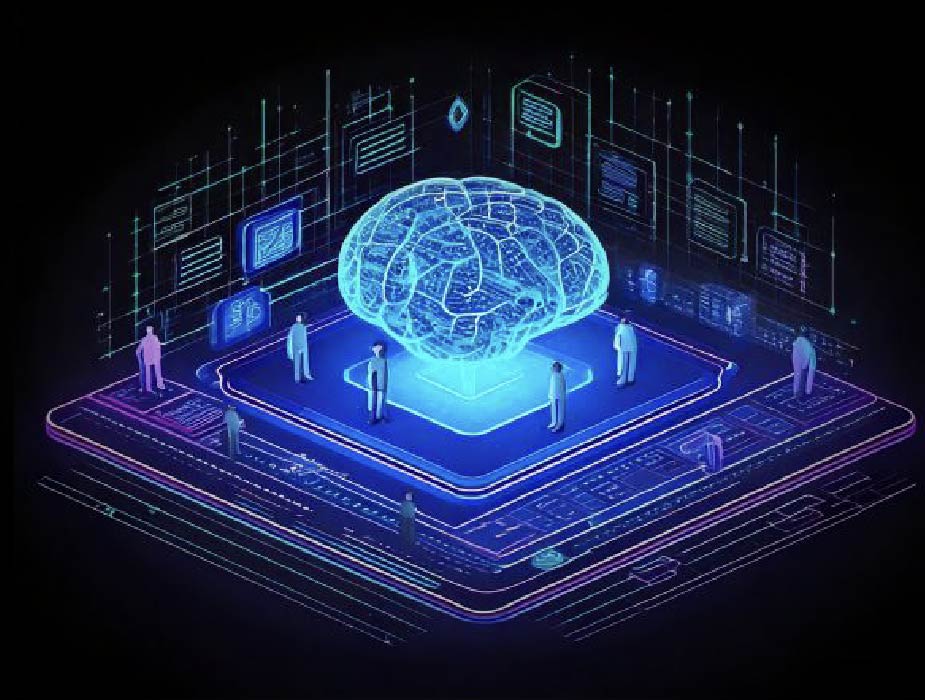Join our newsletter



AI is now front-row and center. A recent Gartner survey of over 300 organizations across the US and UK reveals a significant trend: 56% of these organizations see AI expertise as among the most essential skills developers need by 2024. This insight points to a major shift in the tech landscape, where skills in ML have transitioned from niche to necessary, powering innovation across industries from healthcare to retail and entertainment. The increasing focus on advanced computing abilities suggests that ML-driven expertise is now foundational for modern software development.
The integration of advanced computing technologies across diverse sectors is far from a passing trend; it’s a transformative shift reshaping efficiency, decision-making, and user experiences. As businesses pursue competitive advantages, the demand for these skills has reshaped hiring expectations for development teams. Companies are no longer looking only for coders with conventional programming skills; instead, they seek professionals who can implement and optimize models that enable predictive insights and adaptive automation. This shift in required skill sets reflects a greater need for talent who can develop scalable, dynamic solutions that bridge the gap between traditional software development and the complexities of real-world applications.
The survey further highlights the challenges many organizations face in bridging this skills gap. Developing expertise in ML demands not just a foundation in coding but also a deep understanding of data processing, model optimization, and the ethical implications of its use. Organizations report difficulties in finding professionals equipped to apply these tools effectively and ethically. Thus, many are investing in comprehensive learning and development programs to ensure their workforces are prepared for a future shaped by advanced digital technologies.
In the years ahead, the role of the developer will increasingly center on a combination of traditional and adaptive skills, where continuous learning and strategic thinking are critical. The organizations that equip their teams to master these cutting-edge capabilities will not only keep pace but also position themselves to lead in the next era of digital transformation.
In a survey conducted by Gartner of 300 organizations in the US and UK, it was found that 56% of these organizations considered AI and machine learning (AI/ML) skills to be the most sought-after capabilities for developers by 2024. This reflects a growing trend where AI is no longer a niche technology but a central force driving innovation in industries like healthcare, finance, and entertainment.
Many developers lack the expertise to harness AI to build smarter, more efficient applications, creating an urgent need for skill enhancement.
Gartner’s report identifies three key phases in which AI will influence developers' roles and productivity, shaping the future of software engineering.
In the short term, AI tools will primarily assist senior developers by automating mundane tasks and increasing productivity. These tools, such as AI-powered coding assistants, are already being integrated into development workflows, complementing developers' efforts. However, early results show that the productivity improvements have been modest. The organizations best positioned to benefit from this phase are those with mature technology infrastructures and advanced development practices.
The medium-term sees the beginning of AI-native software engineering. This is when AI-generated code becomes more prevalent, and AI tools start to handle more significant portions of the software development lifecycle. As AI agents take over routine and repetitive tasks, such as writing boilerplate code or automating bug fixes, developers will need to focus on higher-order responsibilities like design, system architecture, and innovation. This transition will also have an impact on job roles, with junior developers being particularly at risk of being phased out if they don’t acquire the necessary AI skills.
In the long term, AI will make development work more efficient overall, allowing teams to build complex systems faster and more accurately. However, this efficiency comes with increased demand for highly skilled developers who can understand, train, and collaborate with AI systems. The demand for developers capable of managing AI-powered software will grow exponentially, forcing them to continuously update their skill sets to remain relevant.
Despite widespread speculation that AI could reduce the need for human software engineers, Gartner's analysts argue that human expertise will remain essential in the development process. Developers will still be needed to address the nuances and complexities of real-world applications that AI alone cannot solve.
This means that even in a future where AI can handle many coding tasks, developers will need to leverage their human intuition, creativity, and critical thinking to solve unique problems and drive innovation. Developers who can blend their technical expertise with AI's capabilities will be in high demand.
This includes learning new programming paradigms and becoming proficient in AI and machine learning techniques. AI is expected to revolutionize not just software development, but also how developers approach their careers. Developers who embrace lifelong learning and stay ahead of technological trends will find new opportunities, while those who resist upskilling risk falling behind in an increasingly AI-dominated industry.
The integration of AI into software development is reshaping the way developers work and interact with technology. While AI will take over routine tasks, it will also create new opportunities for developers who are willing to adapt. To thrive in this AI-powered future, developers must focus on upgrading their skills in AI, machine learning, and emerging technologies.
By 2027, software engineers will need to be both AI-savvy and creative problem solvers, using AI as a tool to drive innovation and build the next generation of software applications. Those who adapt will not only secure their place in the future of software development but also become leaders in an increasingly automated world.